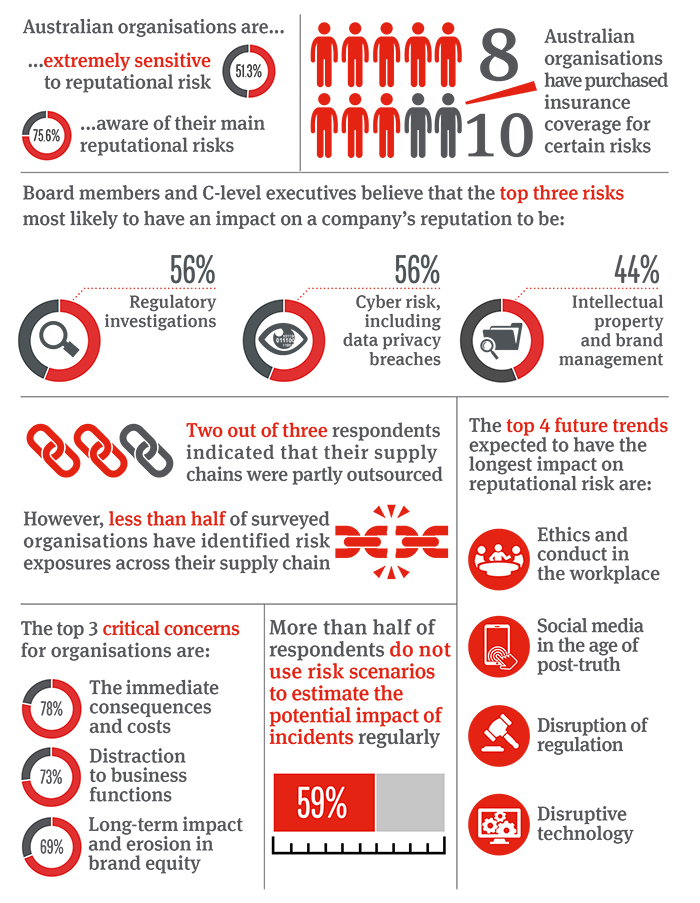Reputational Risk Australia - 2017 Survey Report
Australia | Publication | September 2017
Reputational capital is the new black. Faced with changing consumer preferences, growing public mistrust and social media powered news, business leaders are highly sensitive to the pivotal role reputation plays in the success of each company.
In 2017, Norton Rose Fulbright surveyed business leaders across Australia with regard to reputational risk, and what it means for their respective organisations. The results outline the high awareness and good knowledge of different exposures that could results in reputational damage, but also point to certain areas for improvement.

Several strategies can help businesses manage reputational risk more effectively, and strengthen compliance across their corporate cultures:
- Maintain an open dialogue between board members, the executive team, general counsel and risk managers in order to have a more accurate, multi-faceted view of potential reputational threats, and a fit-for-purpose mitigation plan.
- Stress-test policies and processes against real-world risk scenarios regularly, and embed the learnings for continuous improvement. Constant monitoring is a critical part of ensuring compliance.
- Organise regular training for exposures that can result in reputational damage, ranging from cyber risk to ethical conduct and diversity. This can help further embed organisational values in your culture, and foster a culture of compliance.
To find out more about what reputational risk means to Australian organisations and benchmark your business against your peers, read our full report.
For more information, contact one of our risk advisory experts below.
Associated resources
List of pages
Recent publications
Publication
Updates to the Commonwealth Procurement Rules: What do you need to do?
On 17 November 2025, updated Commonwealth Procurement Rules (CPRs) will commence (the 2026 CPRs), repealing the previous CPRs which commenced on 1 July 2024 (the 2025 CPRs). Key changes can be seen in relation to:
Publication
Environment Protection Reform Bill 2025: Draft MNES and Offsets Standards open for public feedback
Two draft National Environmental Standards have been released for public consultation: one for matters of national environmental significance (MNES Standard), the other for environmental offsets (Offsets Standard).
Publication
Looking ahead to the ‘Forest COP’: Expectations for COP30
Next week, governments will convene in Belem, Brazil for “COP30”, which will take place between 10-21 November. Short for the 30th “Conference of the Parties”, this summit is the annual meeting of the supreme decision-making body of the United Nations Framework Convention on Climate Change (UNFCCC).
Subscribe and stay up to date with the latest legal news, information and events . . .











